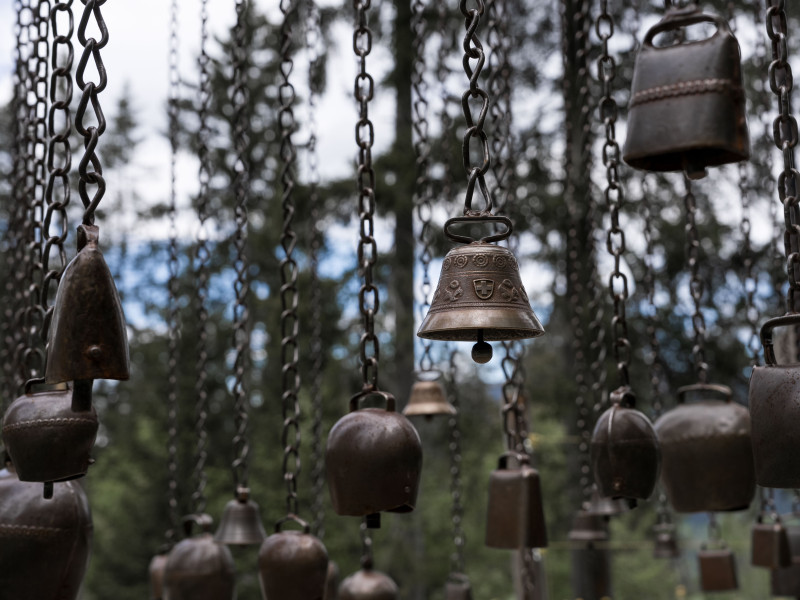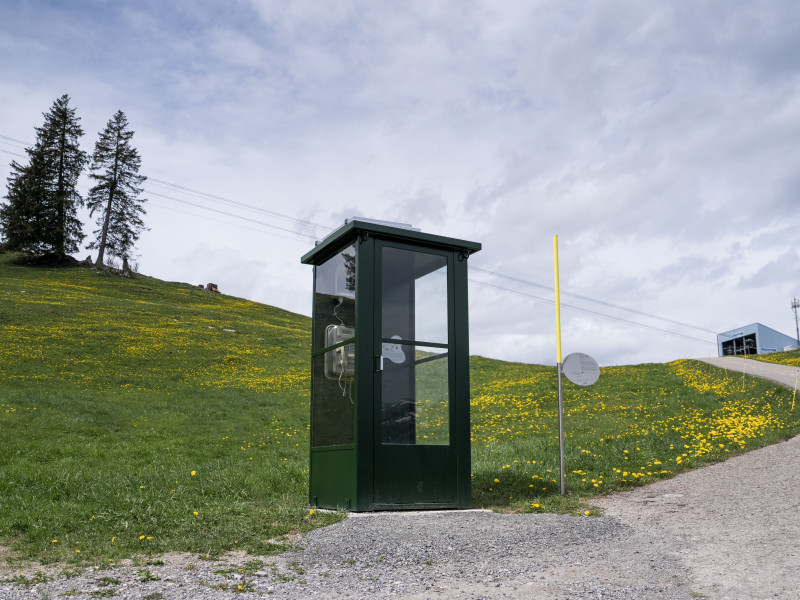
It was not only the wild carrot that inspired Frédérik Laffont to create his sound sculpture The Ringing and Shining Flowers – for him, the rustling of the wind in the leaves of the bushes and trees is also part of the landscape into which his sound art should be integrated. This sound is created by the friction of the leaves and branches against each other, as well as the swaying of the tree. For the artist, nature's soothing concert of leaves is composed of the sum of many simultaneously sounding elements or ‘instruments’. To ensure that this diversity is also reflected in his sculpture, the flowers of his sound art, which are over four metres high, consist of countless tiny singing bowls
Petals as Singing Bowls
Five metal singing bowls of different sizes and thicknesses and a stainless steel pendulum form each of the many flowers. The individual petals of the gigantic flowers have the tonality of Zen bells. Each flower consists of 245 bowls in total – the entire work, therefore, of 735 notes. Even in a light breeze, the flowers and the stems of the flowers are moving. Without the use of electronic methods for recording, processing or amplifying sounds, this movement alone creates a ‘rain of notes’ – a crystalline shimmering of sound: the wind is playing music.
As an artist, Frédéric Laffont champions the idea that:
‘You preserve what you love’
With his chiming and singing flowers, he aims to capture the attention of visitors, as he does with his other sculptures and installations. He hopes that they will linger in wonder at the installation and use the poetry of the artificial flowers to perceive the wider environment and landscape with love. His aim is to raise awareness of the beauty of nature. Ultimately, he sees his art as a complementary approach to a scientific and ecological dialogue – which will hopefully lead to the preservation of the Earth's climate and thus the impressive life on Earth.
About the artist
Frédéric Laffont studied art at the École Supérieure des Arts Décoratifs Olivier de Serres in Paris between 1989 and 1993. Even his first works were in the audiovisual field and from then on he took part in many competitions for sound experiments in public spaces. Laffont realised, among other things, the sound tour through the French city of Vaucouleurs, ‘Noosphere’ in Rouen, ‘Pentatonies’ in Lathus-Saint-Rémy (2013) or ‘Les Hydrophiles’ in Montreuil (2017) and took part in the huge open-air art exhibition “L'Industrie Magnifique” in Strasbourg in 2020.
fredericlaffont.com ↗

